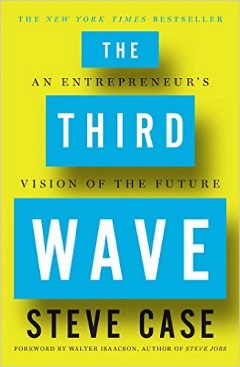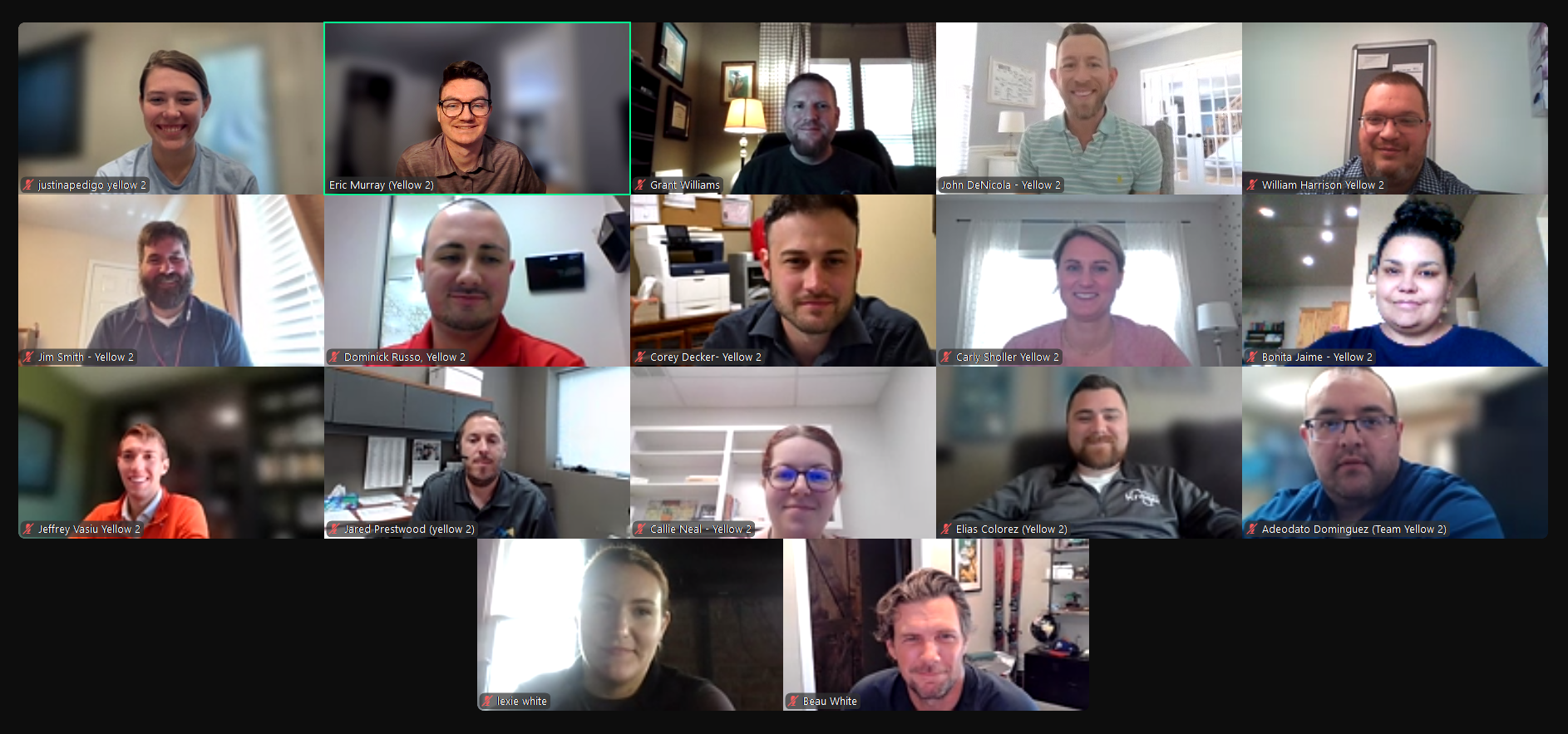By: Carol Abel, Vice President of Education, Food Marketing Institute

With Steve Case, entrepreneur, investor and co-founder of America Online, scheduled to speak in a few weeks at FMI Connect, I picked up his new book for a sneak peek at what words of wisdom a pioneer of the internet might offer today’s food retail audience. The Third Wave: An Entrepreneur’s Vision of the Future (Simon & Schuster, April 2016) is part memoir of the rise and fall of America Online (AOL) and part prediction of the industries and opportunities for the near future. There are lessons in both for grocers and those who work for and with them.
Case suggests there have been three waves to the growth of internet companies. The first, in the 1980s and 90s,was those companies, like AOL, that were responsible for laying the foundation for the online world, taking the internet from a government and academic communications channel to one accessible to everyone through a dial-up modem. AOL was a leader in giving people a reason to go online and making it a fun experience. Remember the squeaking, beeping, and squealing of the modem connecting, followed by that soothing voice saying, “You’ve Got Mail?”
The second wave, he contends, are those companies like Amazon, Google, Facebook and Twitter who made the internet an everyday vehicle for millions of people and businesses, used to buy almost anything, immediately discover any fact, share stories and pictures with long lost friends, and see news even as it is happening. In this second wave that dominated the first decade plus of the new century, mobile, the app and ecommerce are kings.
Now, in the mid-2010s, we are in what Case calls the third wave, which is not just the internet of things, but the internet of everything. The current wave will be the one where, “every industry leader in every economic sector is at risk of being disrupted.” He highlights three industries ripe for third wave disruption, healthcare, education and food. In this third wave the mantra is, “More personal. More individualized. More data-driven.”
As an entrepreneur and investor, Case sees opportunities in the third wave for entrepreneurial companies to “fundamentally change how we grow and raise our food, how we store it and transport it safely, and how we deliver it to customers.” He cites examples of internet-connected circuitry in bee hives that could save them from the mites threatening their populations, beams of light that kill pathogens without heating up meat, and companies like Sweetgreen that use technology to manage the logistics of a seasonal farm-table operation as harbingers of this disruption. His own investment firm, Revolution has invested in Sweetgreen, Revolution Foods (no relationship) (Revolution Foods COO, Kirsten Sanz Tobey sat on a panel at Midwinter 2016), and several other third wave food pioneers.
Like those pioneers of the first wave who had to spend time on more than just the technology they were building, successful third wave companies will, according to Case, take advantage of opportunities to partner with others, work with government and policy makers, and exercise the age old characteristic of perseverance. Such companies will recognize that the future is approaching at a much faster pace than we like to think and will lift up those within their companies who are seeing around corners and embracing optimism about the future. They will be self-disrupters.
The rest of Case’s book focuses on the disastrous merger of AOL with Time Warner. Some of the explanations in these pages are surely attempts to tell his side of the story, but there are lessons even here for those struggling with cultural and organizational change. He admits that when working toward the merger he made some fatal miscalculations in not doing enough to build an ownership culture among the joint teams from the merged companies and let simmering mistrust and resentment boil over.
“The Third Wave” is a quick read and both a snapshot of the history of one of the most disruptive companies of the turn of the new century and a formula for those that would shape the direction of the economy and culture of the 2020’s. The first 1,500 attendees at Case’s FMI Connect presentation on June 21 in Chicago will receive a copy of the book and discover ideas for everyone from the individual entrepreneur to the corporate executive to the government policymaker. I am eager to hear how this pioneer of the first wave and investor in third wave food companies will apply his ideas to the challenges and opportunities of our industry.
Learn more about the FMI Connect education program.

 Industry Topics address your specific area of expertise with resources, reports, events and more.
Industry Topics address your specific area of expertise with resources, reports, events and more.
 Our Research covers consumer behavior and retail operation benchmarks so you can make informed business decisions.
Our Research covers consumer behavior and retail operation benchmarks so you can make informed business decisions.
 Events and Education including online and in-person help you advance your food retail career.
Events and Education including online and in-person help you advance your food retail career.
 Food Safety training, resources and guidance that help you create a company food safety culture.
Food Safety training, resources and guidance that help you create a company food safety culture.
 Government Affairs work — federal and state — on the latest food industry policy, regulatory and legislative issues.
Government Affairs work — federal and state — on the latest food industry policy, regulatory and legislative issues.
 Get Involved. From industry awards to newsletters and committees, these resources help you take advantage of your membership.
Get Involved. From industry awards to newsletters and committees, these resources help you take advantage of your membership.
 Best practices, guidance documents, infographics, signage and more for the food industry on the COVID-19 pandemic.
Best practices, guidance documents, infographics, signage and more for the food industry on the COVID-19 pandemic.
